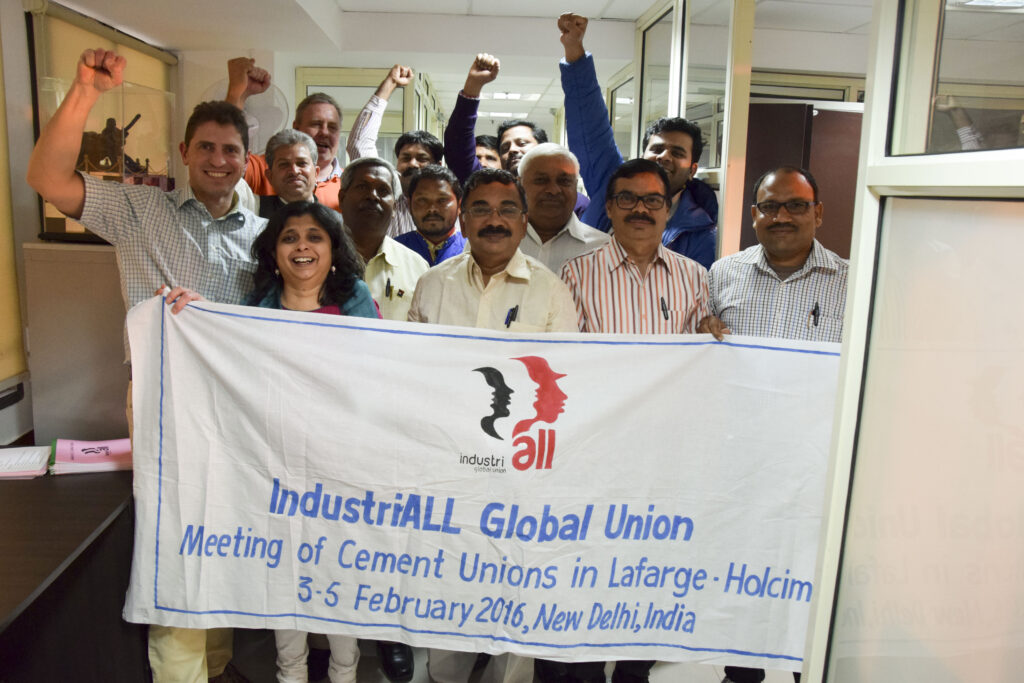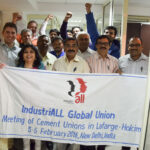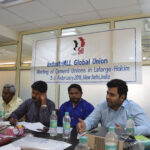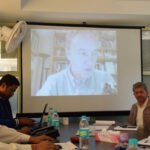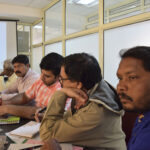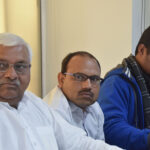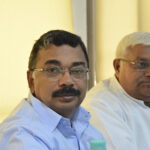Read this article in:
English
8 February, 2016IndustriALL’s Indian cement unions have agreed to make organizing precarious workers a priority, following a workshop held in New Delhi from 3 to 5 February 2016.
The three-day meeting was convened to discuss the implications for workers following the merger between cement giants Lafarge and Holcim in July 2015.
IndustriALL affiliates, the Indian National Cement Workers’ Federation (INCWF) and Pragatisheel Cement Shramik Sangh (PCSS) have decided to intensify their efforts in organizing precarious workers in cement plants in India, including those owned by LafargeHolcim.
Union organizers also told of the difficult situation faced by precarious workers at LafargeHolcim’s Ambuja and Jamul cement plants. The majority of precarious workers remain employed for years in the core production of the company in violation of national labour laws. They receive meager wages and live in abject poverty. They have no job security and receive inadequate training in safety and health issues. Often precarious workers work for long hours and do not get any benefit of welfare measures provided in statutory provisions.
The INCWF expressed its discontent with the wage settlement process and non-participation of LafargeHolcim in the national cement wage board. The wage board sets wages in the cement industry and is of utmost importance for a fair wage and better working conditions in India´s cement industry.
The unions unanimously adopted a joint plan of further activities including a mapping of the cement sector in India. They also resolved to take measures to increase trade union membership and start organizing all categories of workers.
At the end of the meeting the participants had a teleconference with LafargeHolcim representative Feliciano Gonzalez, head of labour relations and social policies, and were able to bring their concerns directly to global level management of the company. Gonzalez is planning to visit India and potentially IndustriALL and Building and Wood Worker’s International regional offices in the near future.
Apoorva Kaiwar, regional secretary of IndustriALL’s South Asia Office and Matthias Hartwich, director of IndustriALL’s materials industries and mechanical engineering led the workshop.
Kaiwar noted that, although cement companies in India including LafargeHolcim are increasing their capacity, production volumes and exports, benefits of the growth have not permeated down to workers.
“It is not acceptable that companies are no longer regularizing contract workers who are working at the plants for long periods, as they should be according to national legislation,” said Kaiwar.
She expressed concern that more than 70 per cent of the workforce in cement plants in India work under precarious conditions.
Matthias Hartwich provided an overview of LafargeHolcim merger and its consequences for rights of cement workers around the world. He said that since the merger, thousands of workplaces have come under threat and IndustriALL and the Building Workers´ International, have decided on a global campaign in support of workers´ rights at LafargeHolcim.
Hartwich said: “In the years prior to the merger, poor health and safety provisions at both Lafarge and Holcim plants resulted in accidents leading to the deaths of around 70 workers a year. Some 90 per cent of them were precarious workers.”
Hartwich called upon unions in India to cooperate and contribute to international efforts to reach a Global Framework Agreement with LafargeHolcim, so that it would prioritize health and safety at its plants and improve respect for workers’ rights.
Alexander Ivanou, IndustriALL’s communications officer presented various activities globally undertaken by unions demanding that LafargeHolcim protects workers’ rights during and after the merger. He also presented organizing and campaigning issues within IndustriALL.
PCSS union representatives reported of the recent victory achieved by the PCSS union jointly with IndustriALL through the OECD complaint submitted in 2012 and numerous consequent negotiations with the management, which finally resulted in the great victory for the union and its members at the ACC Jamul cement plant.
